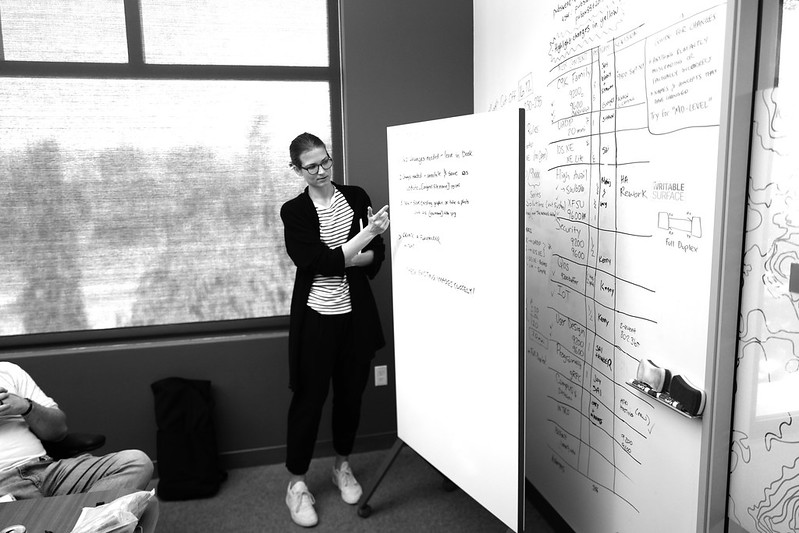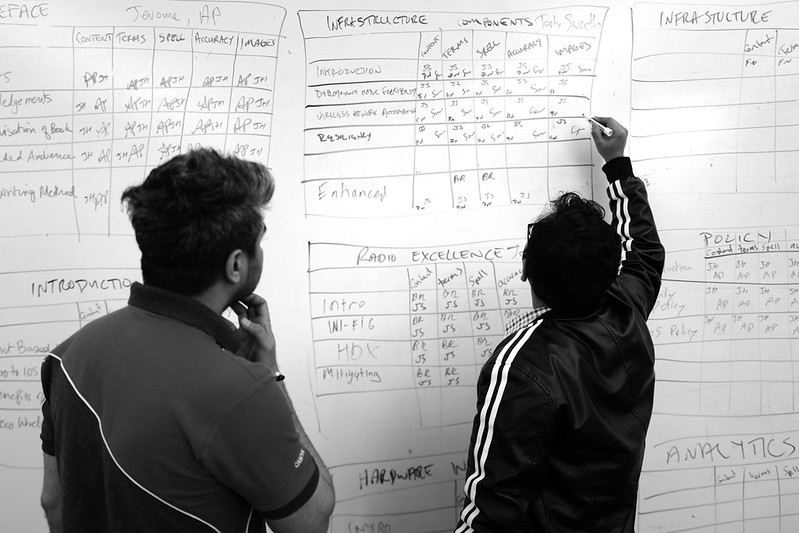3 books in 5 days with Cisco: a venture into Update Sprints
In April 2019 we facilitated our first series of Update Sprints for Cisco on three different books we had produced for them in the last few years: SD-Access, Wireless and Catalyst Switches. We took two days per book and worked with a mixed group of original authors and newcomers who collaborated to refresh the outdated content of the book. The updated books are available for download through the links in each title.
It required an adaptation of our typical method and we are pretty happy that it worked as this fulfils a significant need amongst many of our clients. Particularly those like Cisco who are producing software solutions which change constantly. Sometimes the technical documentation is outdated as quickly as 6 months after publishing.
Updating existing text can be a little nerve-racking. You have a book which was produced through a week of long workdays and includes 100s of decisions made by a group of dedicated authors who by the end usually feel like protective parents. And then you want to bring new people into the mix and let them go wild on the text? For this reasons, there are two things which have proved to be essential to the success of an update sprints: the presence of some of the original writers who can act as gatekeepers and really clear parameters on what kinds of changes can be made, agreed with all of the authors at the start of the book.
And a lot of check-lists!
Once you have that agreement and the group has a clear list of what needs updating, it’s pretty straightforward. For the most part the Cisco writers just put their heads down and did it. An extra chunk of work on our side involved updating the multiple diagrams which had been produced for the original books. To do this we also adapted our workflow a little, designing a new workflow which allowed the writers to work more collaboratively on the illustrations with each other and directly with our illustrators.
The Update Sprints were conducted as part of Sprint Lab our new space for more experimental facilitation methodology design.




